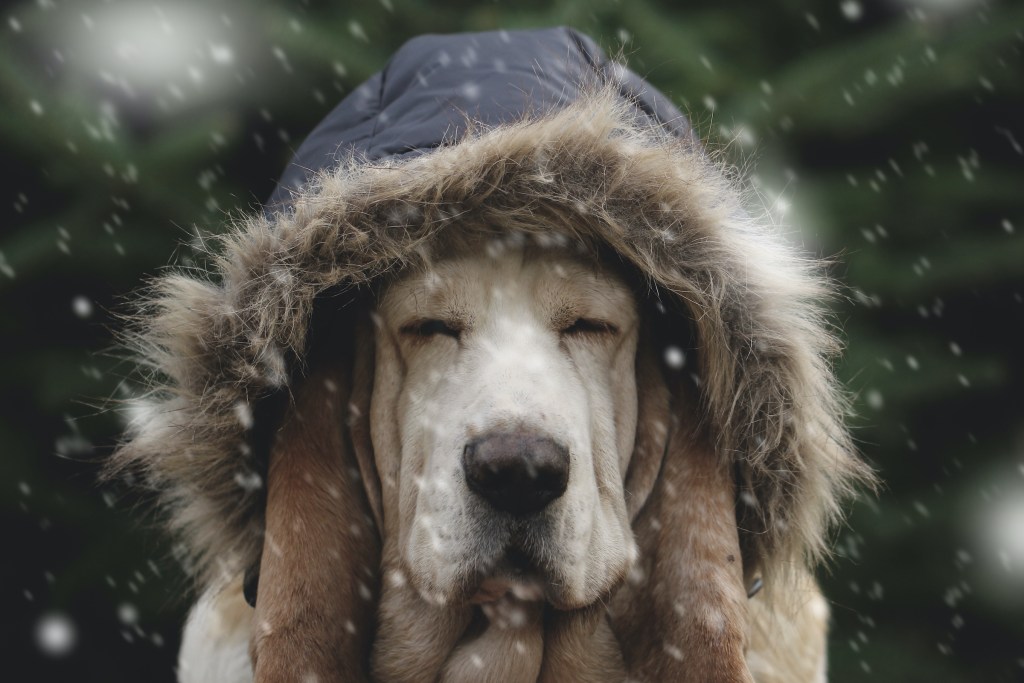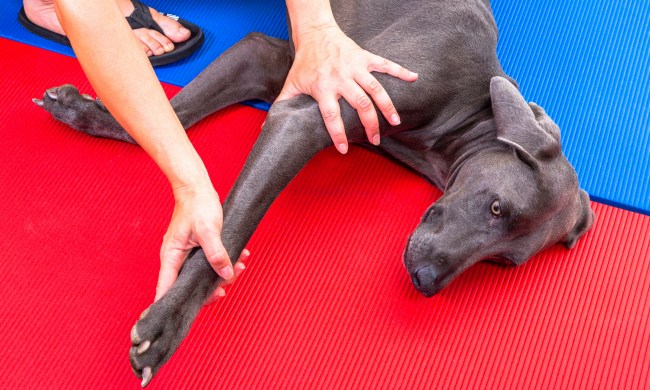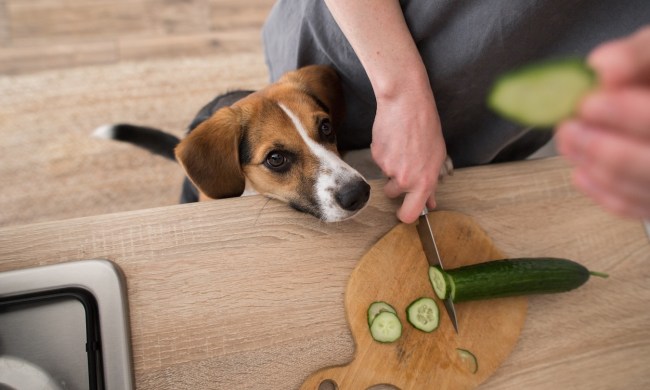As the colder months creep in, temperatures can drop before you know it. You’ll have your sweaters and boots to wear, but does your dog need extra warmth this winter? She certainly might want a dog winter jacket, especially if you like (or need) to take daily walks. Even bathroom breaks might require some extra warmth, depending on your dog, but how do you know?
Dog coats for winter come in a variety of styles and thicknesses, so you’re bound to find whatever your pup needs. Whether it’s a sweater for everyday wear or a windbreaker for stormy walks, these are the breeds that should be dressed for warmth this winter.
Breeds with short or no fur
With little to no fur to keep them warm in chillier climates, these breeds may need an extra layer to stay comfy. They may even enjoy wearing a sweater throughout the night or even during the day, depending on the dog and their preferences.
These breeds include:
- American hairless terrier
- Chinese crested
- Xoloitzcuintli
- Bull terrier
- Weimaraner
Not all short-haired breeds will need a sweater, especially indoors, so it’s important to pay attention to your dog’s body language to gauge whether she seems chilly. When in doubt, give a lightweight dog sweatshirt a shot!
Small and toy breeds
Smaller breeds have less body mass to retain heat, so they tend to get cold rather quickly. In fact, according to the American Kennel Club, this is one main reason why tiny dogs like Chihuahuas are known for shivering. To help combat this, a cozy winter jacket for dogs will be just the thing.
These are some breeds and groups more likely to be sensitive to the cold because of their size:
- Chihuahua
- Small or miniature terriers
- Toy or “cupcake” breeds
- Pomeranian
- Miniature pinscher
- Pug
- French bulldog
Size also isn’t a one-size-fits-all deal when it comes to warmth, as some breeds have more fur than others. Of course, there are factors other than size, fur, and breed, but these three can be some of the most obvious signs of a pup who needs a warm dog sweater.
Low-riders
Low-riding breeds are those who stand close to the ground thanks to stumpy, tiny legs. Although most of these breeds have more than enough body mass and fur to keep them warm, these pups are at risk of exposure to the cold from brushing up against ice or snow on the ground. Cold paws are enough to deal with, so you’ll want to grab these dogs a warm winter coat to keep their chest and tummy warm, too.
Some low-riding breeds include:
- Corgi
- Dachshund
- Basset hound
- Scottish terrier
- Norfolk terrier
When shopping for these dogs, make sure the jacket you choose covers enough of your dog’s front to protect her from anything on the ground. You may also want to consider a rain jacket for dogs instead of a sweater to keep water and cold away from your pup’s body.

Thin, muscular dogs
Just like small dogs, thin pups don’t have enough body mass to retain a lot of heat in the winter months — which is why a jacket can help. Even large lean breeds like greyhounds can be more sensitive to the cold since fat retains heat much more efficiently than muscle does.
These thin breeds include:
- Greyhound
- Italian greyhound
- Whippet
- Afghan hound
- Saluki
- Borzoi
At what temperature does my dog need a sweater?
Although every dog has her own preferences and desires, most dogs will be comfortable until around 45 degrees Fahrenheit (via Pedigree), though some extra-sensitive pups might get chilly around 60 degrees and lower.
Pedigree advises owners of “small breeds, puppies, senior dogs, or thin-haired breeds” to put a sweater on their dog whenever the outside temperature reaches 32 degrees or lower, though all pet owners should keep a close eye on their furry friend when the mercury drops below 20 degrees Fahrenheit.
Remember, pet parents, breed isn’t the only factor in determining your pup’s tolerance of the cold. You should take special care of dogs who are suffering from arthritis or who have recently been sick or injured. Especially young or old dogs can also be at risk, so there really is no limit to which breeds can benefit from a high-quality, properly fitting winter coat for dogs.




